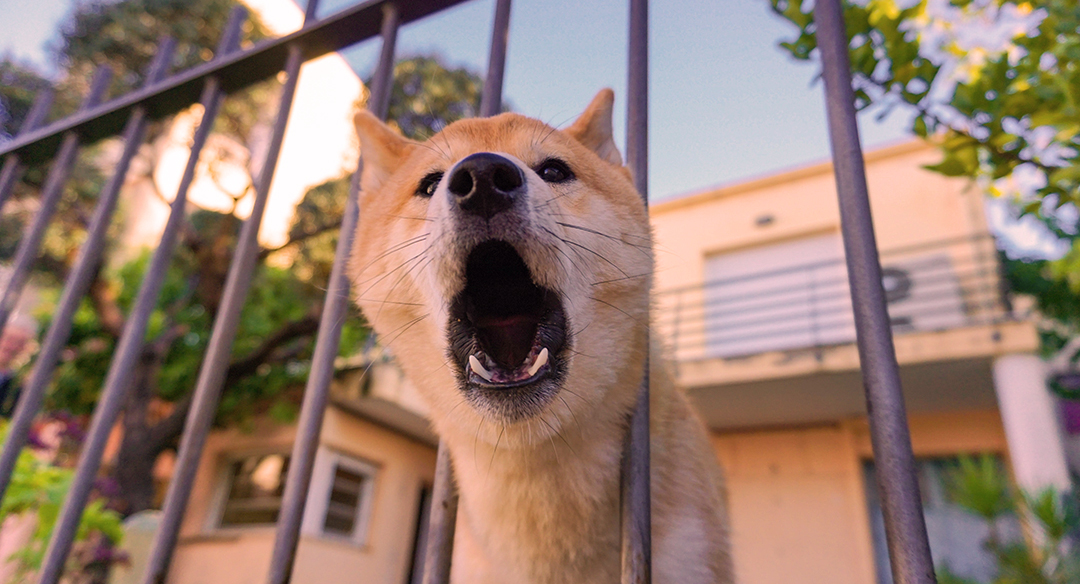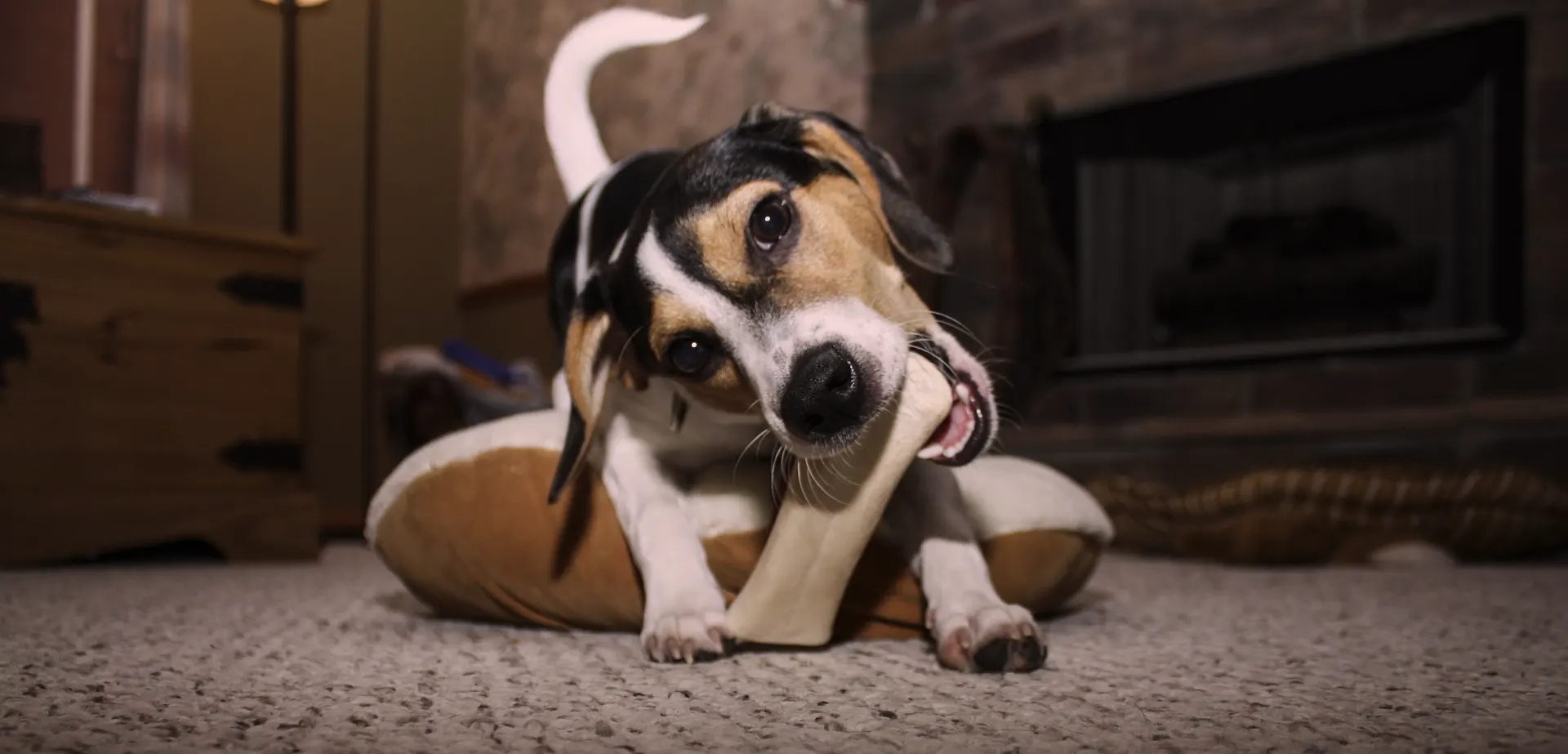Embarking on the adventure of puppy training often brings delightful surprises, but let’s face it, there can be a few bumps in the road. Once in a while there are those moments when your furry friend seems to have a mind of their own and engages in behaviors you’d rather discourage. Here’s how to navigate through some common unwanted puppy behaviors with patience and positive reinforcement.
1. Chewing and Mouthing:
Puppies explore the world with their mouths, and while this behavior is natural, it can be a bit overwhelming for your favorite pair of sneakers. To address excessive chewing, provide appropriate chew toys and redirect their attention when they go for something off-limits. Positive reinforcement puppy training comes into play when you reward them for chewing on the right items, reinforcing the idea that those are the preferred choices. Additionally, consider incorporating interactive toys that dispense treats when chewed on correctly, further reinforcing positive behavior.
2. Jumping Up:
The enthusiastic welcome of a jumping puppy may be endearing, but it’s not always welcome. To tackle this behavior, teach your puppy the “off” command and reward them when all four paws are on the ground. Consistency is key—ask visitors to do the same. Over time, your pup will learn that staying grounded leads to positive attention. Furthermore, engaging your puppy in obedience training classes where they learn to sit or stay can also help redirect their energy and enthusiasm in a more controlled manner.
3. Excessive Barking:

While occasional barking is normal, incessant noise can be a challenge. Identify the triggers and redirect your pup’s attention to more appropriate activities. Use the “quiet” command and reward them when they comply. Positive reinforcement helps them associate silence with positive outcomes. Additionally, providing mental stimulation through puzzle toys or obedience training can help channel their energy constructively, reducing the likelihood of excessive barking out of boredom.
4. Potty Training Challenges:
Accidents happen, especially during the early stages of potty training. Instead of scolding, take your pup outside immediately after any mishap and reward them when they do their business in the designated area. Positive reinforcement helps them connect the outdoor potty with praise and treats. Consider creating a consistent potty schedule and sticking to it to help reinforce good habits. Additionally, supervising your puppy closely indoors and providing frequent bathroom breaks can also aid in successful potty training.
5. Separation Anxiety:
Puppies, like humans, may experience separation anxiety. Gradually accustom them to being alone by leaving for short intervals and gradually increasing the time. Make departures and arrivals low-key to avoid creating a big emotional event around leaving. Provide engaging toys or treats when you leave to create a positive association. Additionally, incorporating calming activities such as gentle music or leaving an item with your scent can help reassure your puppy during your absence.
6. Digging:
If your pup is transforming your backyard into a construction site, provide a designated digging area with loose soil or sand. Encourage them to dig there, and when they comply, offer praise and treats. This not only redirects the behavior but also allows your pup an outlet for their natural digging instincts. Consider incorporating interactive toys or activities that provide mental stimulation to keep your puppy engaged and less inclined to dig out of boredom.
Conclusion
Remember, tackling those pesky unwanted behaviors in your puppy requires a mix of patience, consistency, and positive reinforcement. Instead of dwelling on what your pup shouldn’t be doing, steer their energy towards behaviors you approve of. This not only helps in breaking those unwanted habits but also deepens the connection between you and your furry buddy. It’s all part of the journey of growing together and picking up lessons along the way. That’s why, at Unleashed, we suggest kicking off your puppy’s training as early as possible. Check out our Guide to Puppy Training Excellence 101 for some helpful tips. Happy training! 🐾
FAQs about Unwanted Puppy Behaviors
My puppy keeps chewing on everything. What should I do?
Provide appropriate chew toys to redirect their chewing behavior. Puppy-proof your home by removing items they could harm themselves with, and supervise them closely. Consistent correction and praise for appropriate chewing can help.
What can I do to control excessive puppy barking?
To control excessive barking in your puppy:
- 1. Identify the cause of barking (boredom, fear, excitement).
- Provide mental and physical exercise through walks and playtime.
- Use positive reinforcement with treats and praise for quiet behavior.
- Teach a “quiet” command and reward compliance.
- Ignore excessive barking to avoid reinforcing the behavior.
- Create a quiet environment by minimizing triggers.
- Socialize your puppy to various people and situations.
- Offer a safe space for your puppy to retreat when stressed.
- Consult a professional if the barking persists or is anxiety-driven.
- Be consistent in your training methods and patient with the process.
My puppy jumps on people when they come over. How can I stop this behavior?
To stop your puppy from jumping on people:
- Teach an alternative behavior, like sitting, and reward calm behavior.
- Use positive reinforcement with treats, praise, or affection for desired behavior.
- Ignore jumping; turn away and avoid eye contact, only giving attention when calm.
- Ask for a sit command before guests arrive and reward calm behavior.
- Use a leash to maintain control and guide your puppy into a sit position.
- Practice controlled greetings with friends and family.
- Keep homecoming greetings low-key to avoid triggering excitement.
- Ensure consistency in training approaches across all family members.
- Provide sufficient exercise and mental stimulation to manage energy levels.
10. Consider professional training if jumping persists or proves challenging.
What should I do if my puppy shows signs of aggression or fearfulness?
It’s tough, but stay positive! Consult with a professional trainer or behaviorist to address the root cause. Focus on positive reinforcement to build their confidence – punishment won’t do the trick.
How can I stop my puppy from digging in the yard?
Designate a digging spot with loose soil, supervise outdoor time, and gently redirect them. Positive reinforcement for digging in the right spot is the way to go.
My puppy is afraid of certain sounds or objects. What can I do to help them overcome their fears?
To help your puppy overcome fears:
- Identify specific triggers causing fear.
- Create positive associations by pairing feared stimuli with treats or play.
- Use counter-conditioning to associate fearful stimuli with positive experiences.
- Break exposure into small steps, gradually increasing intensity.
- Stay calm and positive during exposures to reassure your puppy.
- Employ desensitization techniques to increase comfort gradually.
- Provide a safe space for your puppy to retreat when scared.
- Avoid force or punishment, which can worsen fear.
- Seek professional help if fears are severe or persistent.
- Be patient and consistent, celebrating small victories in building confidence.



